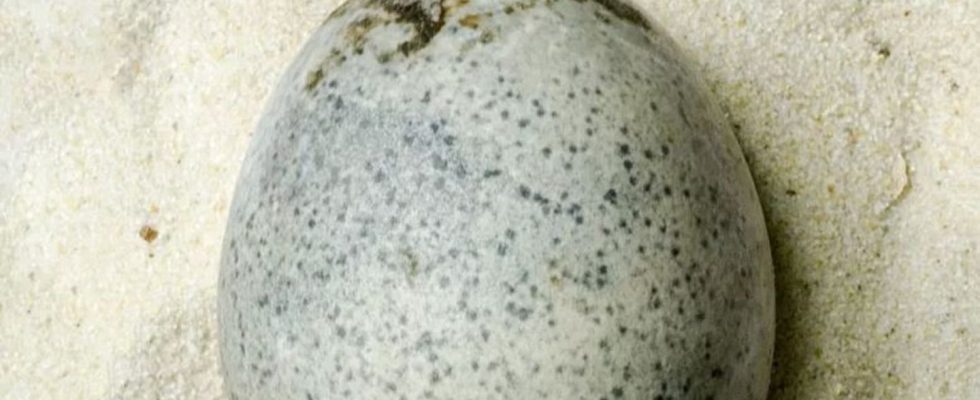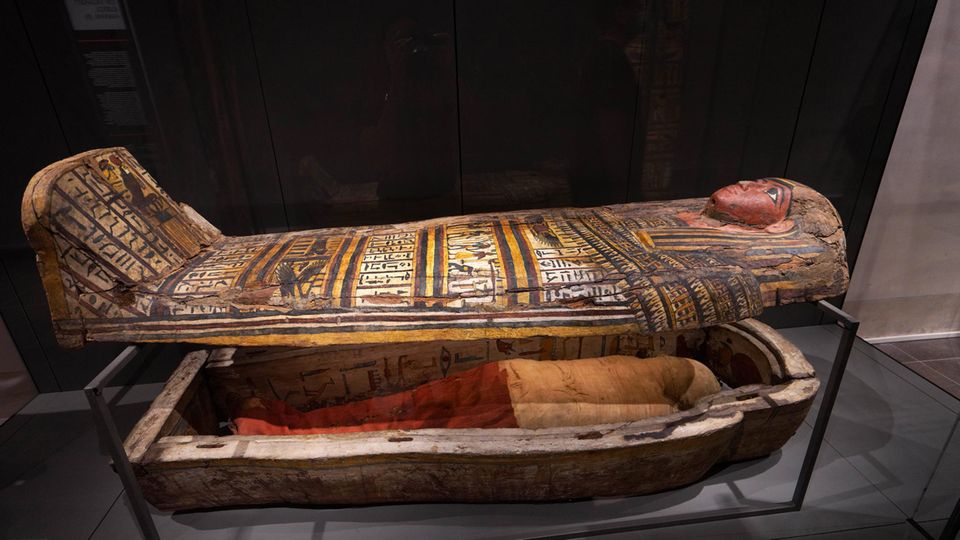A case from England proves that archeology can be as exciting as a crime thriller. There, archaeologists unearthed an object from Roman times – a raw, intact chicken egg.
Anyone who has read Asterix knows that the Romans were also in Great Britain. In the years 43 BC to 440 AD, the occupiers ruled parts of the British Isles, leaving behind buildings and traces of the local language. And – an uncooked chicken egg.
That egg was unearthed in central England several years ago and is currently making the headlines again and again. The BBC recently reported on it again, as did international media and the local newspaper in the town of Aylesbury in Buckinghamshire. The place is northwest of London, between Oxford and Luton Airport.
Between 2007 and 2016, excavations took place here, in the Berryfields district, at a site where a new residential area was to be built. Discovering traces of the Romans is still possible today in many places on the island. An old road from Roman times ran nearby. It was therefore not unlikely that archaeological treasures could be discovered here.
What the researchers found were primarily everyday objects. They came across a pit filled with water, whose original use was probably as a water reservoir for brewing. However, later in those ancient times – perhaps when the pit was no longer used for its original purpose – people threw things into it, including old shoes, woven baskets and probably bread.
Archeology unearths a lot of everyday objects
It is not clear why they did this, but since coins and animal bones were also found during the archaeological excavations, they could have been offerings, as several reports on the find say. Obelix would say: “The Romans are crazy.”
Someone must have thrown several eggs in there too. And the archaeologists actually managed to recover one of them intact – a good 1,700 years later.
The world of antiquity scholars has been blown away by the find ever since. The egg was scanned and it was revealed that there was a liquid inside, which was probably a mixture of egg yolk and egg white. So it had been preserved in that English mud pit since Roman times. But it’s probably no longer edible, it says dryly in one of the articles about the find.
The egg has now been driven and towed across the island to several research facilities to be examined. It’s quite funny to read how an archaeologist rode the egg on the London subway. “It was a bit tricky in the tube,” Douglas Russell of the Natural History Museum told the BBC. “Although it was of course well protected. I didn’t exactly carry it in my trouser pocket.”
There is currently a discussion about how to get the content. This could perhaps be done in a similar way to blowing out eggs at Easter, only much finer and more delicate, explained excavation director Edward Biddulph to the BBC. Because the egg should under no circumstances be destroyed.
The other eggs from Roman times broke and smelled badly
Unfortunately, this is exactly what accidentally happened to the other eggs from the pit during the excavation. Their contents “smelled terribly,” according to reports about the discovery.
A book has now been published about the archaeological finds at Berryfields. The egg excites the researchers so much because it is probably the only known raw chicken egg in the world that is this old. This currently seems even more fascinating than, for example, dinosaur or other mummified eggs from ancient times.
However, it is currently only suspected that it is a chicken egg. Future research will provide clarity about this and many other circumstances, according to articles on the case.
Excavation leader Biddulph is certain: “The egg has huge research potential,” as he is quoted in the “Frankfurter Rundschau”. Science wants to clarify what kind of chicken laid the egg more than a thousand and a half years ago and how chickens and other birds were kept in Roman times. A lot of work still lies ahead of the researchers. “The egg is still revealing its secrets,” the BBC quoted excavation director Biddulph as saying.
In Buckinghamshire they are very proud of the Roman egg. Intact and with the liquid inside, it is “the only one in the world” that is known about, writes the local administration of the region where the sensitive find is currently being kept again. When people were digging there in central England years ago, it was impossible to foresee what sensation was hidden there.
The work of archaeologists does not end when they leave the excavation site, concludes Buckinghamshire Council. And so you will probably hear and read about the Roman egg more often.
Sources: Oxford Archaeology, BBC“Bucks Free Press“, “Frankfurter Rundschau“, Buckinghamshire Council
Read at stern+: Spectacular discovery in archeology: A German-Egyptian research team investigates an underground workshop in the desert floor. And finds out that the deceased were apparently prepared there for their journey into the afterlife.


